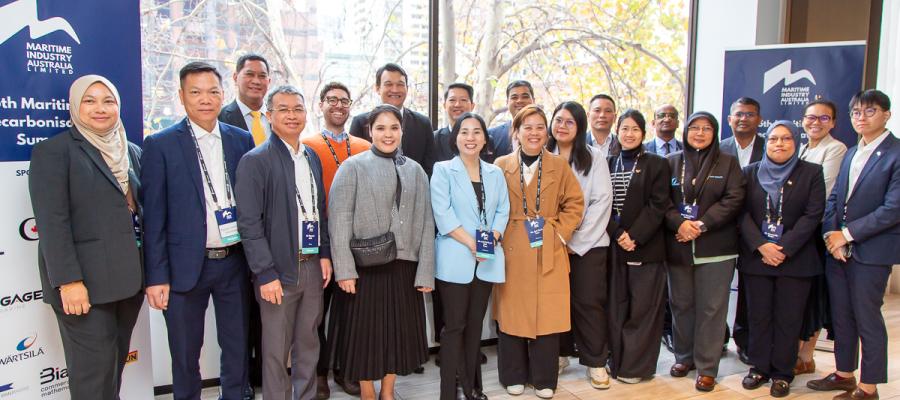If you are interested in partnering with us, please get in touch. Using P4I's flexible, innovative tools and diverse global expertise, we are confident we can design a response that is tailored to your needs.


Maritime transport is a cornerstone of Southeast Asia’s economy, connecting people, goods and industries across borders. But the sector is also a major source of greenhouse gas emissions. As countries across the region take steps toward alternative fuels and greener port infrastructure, the challenge is no longer just ambition, but implementation.
Meeting national and international climate goals will require coordinated approaches to regulation, investment, fuel safety, workforce skills, and infrastructure planning. It also requires sustained collaboration. P4I has established strategic collaborations with key government authorities and operators responsible for maritime policy and infrastructure operations in Malaysia, Thailand and Vietnam.
To support this agenda, Partnerships for Infrastructure (P4I) hosted a Maritime Decarbonisation Technical Exchange in Melbourne from 22 to 28 June 2025, bringing together 15 senior officials from Malaysia, Thailand and Vietnam. Delegates represented transport ministries, maritime authorities, and major port operators, and participated in a full week of site visits, policy roundtables and technical sessions with Australian government and industry partners.
The program was designed around five interconnected themes critical to maritime decarbonisation: policy and regulatory alignment, port efficiency and low-carbon fuel infrastructure, fuel safety, inclusive transition planning, and sustainable finance. These themes shaped both the technical discussions and the site visits, grounding the exchange in the practical challenges governments face when shifting from ambition to implementation.
Delegates toured the Port of Melbourne, Victoria International Container Terminal (VICT), and the CSIRO Centre for Hybrid Energy Systems, where they explored practical approaches to port decarbonisation, automation, renewable energy integration and fuel handling safety. They also participated in the 5th Maritime Decarbonisation Summit, hosted by Maritime Industry Australia Ltd (MIAL), and joined bilateral dialogues with agencies and authorities including the Department of Foreign Affairs and Trade (DFAT), the Australian Maritime Safety Authority, the Department of Infrastructure, Transport, Regional Development, Communications, Sport and the Arts, the Clean Energy Finance Corporation (CEFC), and CSIRO.
Each country brought unique strengths. Malaysia contributed deep regulatory and operational insights from its collaboration with P4I on its Green Bunkering Roadmap as well as its other port decarbonisation efforts. Thailand shared long-term planning approaches, including the development of a Green Port Master Plan and its focus on a just transition. Vietnam provided perspectives on green fuel feasibility and international collaboration through its maritime administration and state-owned fuel provider, Petrolimex.
The Exchange enabled not just knowledge sharing, but also practical peer-to-peer learning. Australian agencies were able to engage directly with Southeast Asian counterparts on issues such as interoperability, safety standards, and green corridor development. Across all sessions, delegates expressed strong interest in continuing collaboration, including through alignment with the IMO Net Zero Framework and the potential for ASEAN-level coordination on regulation and training.
By the end of the week, the Exchange had laid the groundwork for deeper regional cooperation on maritime decarbonisation. Delegates left with stronger relationships, clearer implementation pathways, and a shared commitment to advancing low-carbon, inclusive infrastructure across Southeast Asia.
If you are interested in partnering with us, please get in touch. Using P4I's flexible, innovative tools and diverse global expertise, we are confident we can design a response that is tailored to your needs.
